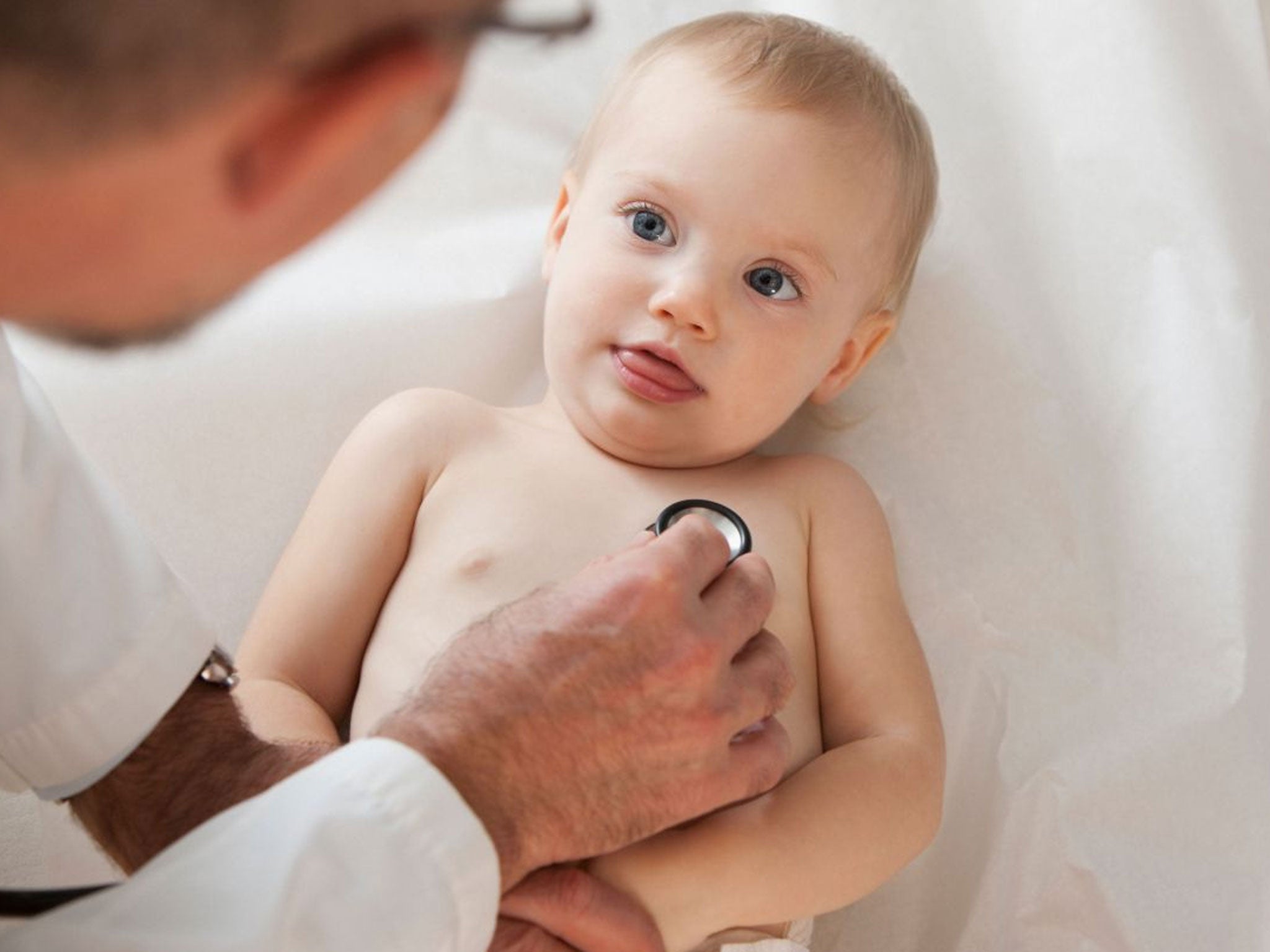Exclusive: Dramatic U-turn as Hunt agrees to free meningitis B jabs for every UK child to protect against 'parent's greatest fear'
Health Secretary to announce free NHS jabs against life-threatening disease in dramatic U-turn

A new vaccine against meningitis B – one of the most feared diseases, which can quickly kill children or leave them needing limb amputations – is to be made available free on the NHS, The Independent has learnt.
The Department of Health is expected to announce on Friday that it has reversed a recommendation made last October by the Joint Committee on Vaccination and Immunisation (JCVI) not to introduce the Bexsero vaccine as part of the UK’s routine child immunisation programme.
The full reasons behind the re-appraisal are expected to be given later.
But sources close to Jeremy Hunt, the Health Secretary, said that the JCVI had noted the criticisms of its decision by leading medical researchers and physicians and had now reversed its conclusion that the vaccine was not cost-effective.
The new evaluation by the JCVI, which advises the Government on vaccines’ efficiency, will come as some relief to Mr Hunt. He had been under mounting political pressure to intervene and ensure that the meningococcal B meningitis vaccine was fast-tracked into routine child immunisation programmes in the UK. The vaccine was approved by the European Medicines Agency in November 2012 and licensed by the European Commission in January last year.
Last month almost 200 leading scientists and researchers signed a public petition and letter describing meningitis and meningococcal disease as “a parent’s greatest fear”, and pointed to the JCVI calculation as “underestimating” the realities of the disease for both children and their families. They urged Mr Hunt to ensure that a promise by the JCVI to look again at its evaluation was “as swift as possible”.
A further petition of 20,000 signatures was organised by the Meningitis Now foundation and handed to 10 Downing Street. The group also placed a numerical counter on its website which estimated the number of meningitis B cases that could have been prevented since the Bexsero vaccine was licensed last year. Tonight, the counter read 673.
David Cameron is said to have personally warned Mr Hunt of the potential political damage to the Government’s record on the NHS due to the vaccine’s increasing uptake by families who used private healthcare and who could afford to pay to protect their children.
Although the vaccine was not available on the NHS, thousands of parents paid for their children to be immunised. Around 85 per cent of private sales were recorded in some of the wealthiest regions of the UK, including London, the South-east and Cheshire. Although the average cost of the required doses is around £300 for children aged six months to two years, some private practices have been charging upwards of £600.
With poorer areas often having the highest infant mortality rates and being associated with higher levels of meningitis, the lack of the MenB vaccine on the NHS was seen as leaving the most vulnerable at risk, in what one leading medical researcher told The Independent was “an unnecessary life-threatening lottery”. The Department of Health’s decision to make the vaccine universally available through GPs makes it likely that a critical “ herd immunity” from MenB will result.
The Bexsero vaccine is produced by the Swiss multinational Novartis, following 17 years of research by the company. Rino Rappuoli, the global head of vaccine research at Novartis, writing in The Lancet medical journal, called the mathematical models used in the JCVI’s initial efficiency calculations “primitive”.
The new vaccine is estimated to cover 88 per cent of MenB disease in the UK. Over the past decade there have been more than 10,000 cases recorded in England and Wales.
The death rate is 5 per cent, with those who survive often facing neurological damage, the surgical removal of limbs and severe skin damage. Although vaccines and immunisation programmes for other strains of the disease have been successful, MenB remains a major health fear. Recent statistics estimated that around 1,200 annual cases resulted in 120 deaths. Although these numbers would have formed a key part of the JCVI’s calculations, there was criticism from some independent advisers that “ significant non-cyclical fluctuations” and the “unpredictability” of MenB rates had not been correctly factored in.
The first meningitis vaccine was introduced against Hib meningitis in 1992. Other forms of the disease, including meningitis C, have since been substantially reduced or dwindled to a handful. However, meningococcal meningitis and septicaemia remains the leading infectious cause of death for children under the age of five in the UK.
The adoption by the NHS of the Novartis vaccine, which took almost two decades to develop, will also be welcomed by pharmaceutical companies. The first decision by the JCVI to assess the vaccine on purely cost-efficiency grounds was thought likely to discourage future complex vaccinology research in Europe.
The Department of Health declined to comment ahead of the announcement.
Join our commenting forum
Join thought-provoking conversations, follow other Independent readers and see their replies
Comments